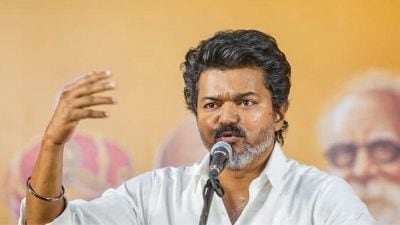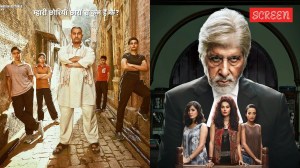The NEXT Frontier
Advertising on the Internet is moving from target consumers to social networks.
Advertising on the Internet is moving from target consumers to social networks.
The most hyped person at the Click Asia Summit (CAS) 2011,held late last week,was undoubtedly Indian export Gurbaksh Chahal. The hitherto unknown 28-year-old is an American Internet entrepreneur and author whose claim to fame includes setting up two advertising companies worth $340 million by the time he was 25.
Chahal sold both his companies and became one of the youngest millionaires,even appearing on Oprah Winfrey’s show in 2008. He founded his third and latest company RadiumOne,previously titled gWallet,which develops breakthrough technology that uses social graph data to dramatically improve online marketing. He is also a bachelor,a fact many ladies were discussing at the CAS conference.
The summit created a forum for some of the top web marketing professionals to congregate and create a marketplace for ideas and services that will help Asian companies in general and Indians in particular get the marketing edge.
Speaking in accented English as one of the speakers at the event,Chahal held a session on the future of digital advertising and put forward a few radical ideas. He said he believes in the Incredible India story. The number of users in the country currently stands at 81 million. India ranks fourth behind Japan (88.1 million users),China (210 million users) and USA (220 million users), the entrepreneur said.
According to Chahal,the advertising model used in online marketing will increasingly stray into the social network arena rather than target people on behavioral patterns. The current trend of collecting information about user’s online habits and targeting advertisements based on their choices will go out of vogue in the next five or six years. The new arena is social network with Facebook leading the way,Chahal declared. The online ad market will cross $219 million by the end of 2011,he added.
A typical way to check how targeted ads work,is to open the homepage of a portal,for instance rediff.com. Based on the user’s web surfing habits,the page will throw up different ads for different users. For example,a person who reads a lot about travel gets an advertisement from a tour and travel company whereas somebody who follows celebrities online gets an ad from a celebrity news website. In social media advertising,an user who gets an advertisement from a travel agency will pass on the same ad to his or her contacts. Social media advertising thrives on the knowledge that friends and contacts have an intimate relationship and share common likes and dislikes, Chahal said.
While Facebook has pioneered this concept so far,Chahal believes there is room for improvement in this space before social media advertising becomes a mainstream form of reaching out to audiences. I love Facebook because it’s simple enough even for my grandmother to use it. But,at the same time,I have about 500-odd ‘friends’ on my profile,some of whom I met three years ago and have not been in touch since. So targeting ads to such people does not work in the marketer’s favour. The concept has to be fine tuned to an extent, Chahal explained.
Comparing Facebook with Google,Chahal said that even the management of the world’s biggest search company seemed to be on shaky ground when compared to Facebook owner Mark Zuckerberg’s ever increasing valuation of himself and Facebook. Zuckerberg is clearly doing something right to scare even Google. That increases my belief in socially networked ads even more, Chahal said. One of the attractions at CAS 2011 was an interactive session Chahal had with Anupam Kher. The veteran actor was invited to speak at the summit on the impact of technology on cinema. Kher began talking about his humble beginnings and how time had changed the way we communicate from telephones,to trunk calls,to mobile phones to holding video conversations over the Internet using Skype. The reason why the actor wishes to stay updated with technology is because he doesnt want people telling him that he is an old man. If my son has 50,000 followers on Twitter,then I want 1,00,000, he said straight-faced.
Chahal joined the stage at this point and began to draw out Kher’s real life story from his struggling days to his current profile. Before leaving the stage,Kher asked the audience a technical question,How does a message go from one phone to another? It baffles me. And as long as it baffles me,I have hope.







- 01
- 02
- 03
- 04
- 05
























